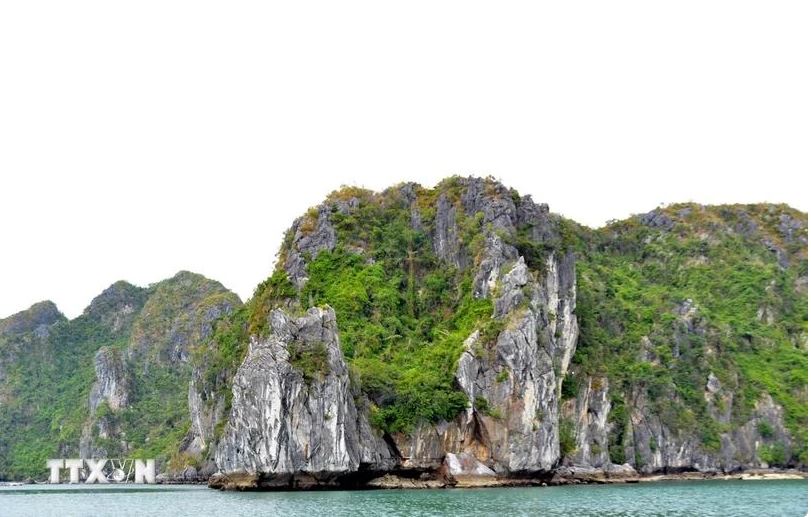December 17, 2024 marks Ha Long Bay’s significant milestone of 30 years since its recognition as a UNESCO World Heritage Site. Over the years, the bay's breath-taking beauty has always been a pride for both Vietnam and the northern province of Quang Ninh, solidifying its reputation as one of the most captivating destinations on the planet.
Eternal beauty of a natural wonder
Nestled in Quang Ninh province, Ha Long Bay boasts 1,553sq.km of stunning landscapes and 1,969 islands, showcasing both majestic beauty and invaluable geological significance.
With its thousands of limestone islands, mystical caves, and pristine beaches, the bay presents a living watercolour painting, showcasing nature at its finest. The value of Ha Long Bay goes beyond its striking appearance. It is home to a rich biodiversity, a unique ecosystem, and distinctive geological and geomorphological features.
This coastal area of the Gulf of Tonkin serves as a "natural laboratory" of geology, illustrating the evolution of sea levels through the ages. The bay is also a cradle for prehistoric cultures, such as Soi Nhu and Cai Beo, with archaeological evidence dating back as far as 18,000 years. The Ha Long culture, emerging around 5,000 years ago, reflects significant exchanges between Southeast Asian and Northeast Asian civilisations, marking a pivotal chapter in the development of ancient Vietnamese culture.
It is also steeped in local myths and legends, adding to its cultural allure and drawing visitors’ eager to explore its captivating folklore.
Dianna Falk, a visitor from Germany, expressed her amazement at the bay’s stunning and majestic landscapes. She said she is impressed by the diversity and richness of the wildlife here.
Meanwhile, Ho Thi Kim Thi, a tourist from the Mekong Delta province of An Giang, said that she finds the bay even more beautiful each time she returns. She described the bay as a place of special attraction for her and her husband, with every visit feeling like a return to its natural, untouched beauty.
In a landmark moment on September 16, 2023, Ha Long Bay, along with the Cat Ba Archipelago in neighbouring Hai Phong city, was once again recognised as a World Heritage Site, making it the first dual world heritage site in Vietnam. This new recognition is of immense significance for Vietnam as a whole, as well as for Quang Ninh and Hai Phong.
Nguyen Cong Thai, former deputy head of the Ha Long Bay Management Board, noted that when the site was first designated a World Heritage Site, it sparked a great sense of pride and a shift in public awareness about the importance of preserving natural heritage. He added that the recognition marked an important step for Vietnam in joining the international efforts in heritage conservation.
Future opportunities
With its immense potential, Ha Long Bay is believed to continue to evolve and solidify its position on the world’s tourism map. In the future, it is expected to become a leading destination for ecological and cultural tourism, attracting visitors from all corners of the globe.
Over the past 30 years, Ha Long Bay has demonstrated its resilience and enduring value. To ensure it remains a precious gem for Vietnam, continued efforts are needed to protect and sustainably develop the site.
The beauty of Ha Long Bay is not only in its majestic landscapes but also in its geological and biological values. The bay’s hundreds of limestone islands create a stunning backdrop with strange and unique shapes. Its caves, with their stalactites and stalagmites, form breath-taking natural sculptures.
From 1994 to September 2024, Ha Long Bay has welcomed over 56.3 million visitors, generating entrance fees exceeding 8.47 trillion VND (333.56 million USD). This impressive figure not only highlights the importance of preserving the bay’s natural state in accordance with UNESCO regulations, but also demonstrates the socio-economic benefits derived from heritage tourism. The revenue generated plays a vital role in reinvestment efforts, enhancing the infrastructure and tourism offerings in the region.
Thai said that after 30 years, the bay has transformed, with its pristine beauty intact while benefiting from improved infrastructure, including ports and coastal transport, making it worthy being a world-class natural wonder.
However, Vu Kien Cuong, head of the Ha Long Bay Management Board, held that the unique values of the bay have yet to be fully optimised, noting that only 10-20% of the site’s tourism resources has been tapped.
He said that the board is working with relevant authorities to assess underutilised resources to upgrade existing tourism offerings and develop new high-end experiences aimed at attracting affluent visitors.
Ha Long Bay still has vast potential to attract luxury travellers, particularly with its cave systems, beaches, and leisure areas located farther from the central regions.
Experts held that in order for the bay to remain a sustainable World Heritage Site, more efforts should be exerted to protect the environment, while encouraging the community to take an active role in preservation./.


















